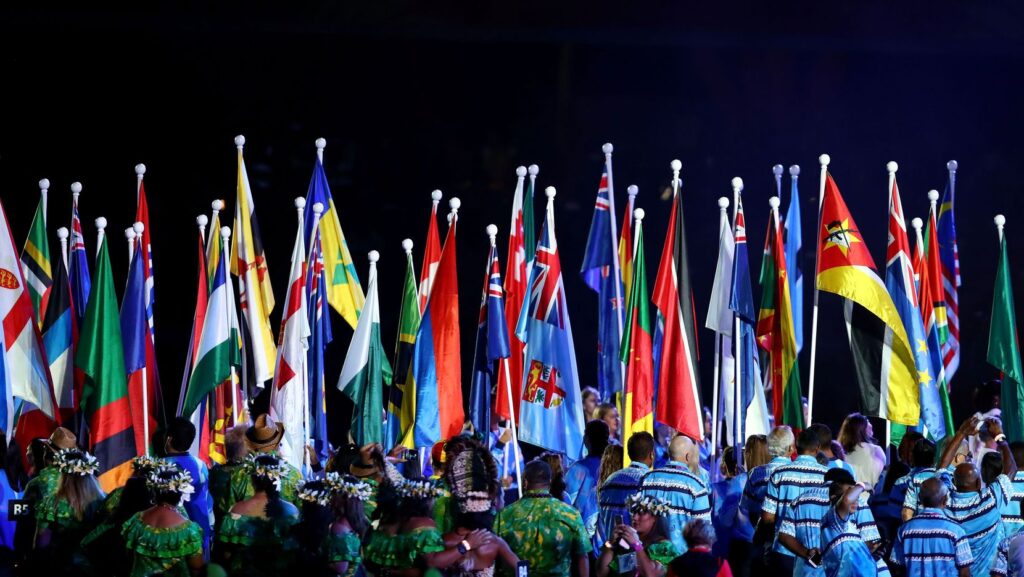
Commonwealth Sport has officially announced that it has received expressions of interest (EOIs) from seven nations and territories within the Commonwealth, signaling strong enthusiasm to host future editions of the Commonwealth Games. These EOIs have come from across four major regions—Africa, the Americas, Asia, and Oceania.
Among the countries publicly declaring their intent to host the centenary 2030 Games are Canada, India, and Nigeria. Two more nations have also stepped forward for the 2030 edition, although they have not yet been named. In addition, two of the EOIs are focused on events beyond 2030, including New Zealand, which has already hinted at a desire to host the 2034 Games.
Katie Sadleir, CEO of Commonwealth Sport, welcomed the global interest: “We are thrilled with the incredible interest from around the Commonwealth in hosting the 2030 centennial Commonwealth Games and beyond. This positive response from four of our six regions underlines the importance and significance of the Commonwealth Games and its position as the major multi-sport event in the world sporting calendar alongside the Olympic Games and Paralympics and shows the strength and appeal of our reimagined Games model.”
Sadleir also highlighted the key role that Scotland has played in shaping the future of the Games. Glasgow is set to host the 2026 Commonwealth Games under a newly adapted model that builds on the city’s successful 2014 hosting. “We cannot understate the hugely significant role Scotland has played in this change, having the foresight, tenacity and innovative thinking to step forward and host the Games in Glasgow in 2026 within an incredibly tight timeframe, building on their legacy of Glasgow 2014,” she said.
Glasgow 2026 is being positioned as a foundational event in the transformation of the Commonwealth Games, paving the way for a more collaborative, adaptable, and sustainable hosting approach. “Glasgow 2026 will be a bridge to the Games of tomorrow – an important first step in our journey to reimagine and redefine the Games as a truly collaborative, flexible and sustainable model for the future of major events,” Sadleir added.
She believes Glasgow’s innovative approach will encourage more nations to see the Games as a viable opportunity. “The impact of Glasgow 2026 starts now with this emergence of a strong pipeline of potential future hosts that gives confidence to current and future commercial partners, showcases the strength of the Commonwealth Sport Movement, and demonstrates the power of the Commonwealth Games brand and sport to unite people.”
This growing interest, she said, also reinforces the significance of the Games for athletes across the globe. “This pipeline also sends a strong signal to our athlete community that the Commonwealth Games remains a major milestone in the global sporting calendar and will continue to be an event that attracts the very best athletes.”
Earlier this year, Commonwealth Sport introduced a refreshed host selection process, inviting all 74 Commonwealth Games Associations (CGAs) to submit their interest in hosting the 2030 Games or future editions. The submission deadline was set for the end of March.
The initiative aligns with the 2023–2034 strategic framework, *Commonwealth United*, and the newly introduced *Games Reset* approach. These reforms aim to move away from the traditional bidding process in favor of a flexible, co-creative system that encourages innovation and inclusivity. This new process allows interested CGAs to work hand-in-hand with Commonwealth Sport to develop customized proposals that align with both their local priorities and the overarching goals of the Games.
Darren Hall, Director of Games and Assurance at Commonwealth Sport, said that the next step involves working closely with each interested CGA to assess feasibility. “Considering the high level of interest in hosting future Commonwealth Games in 2030 and beyond, we will now discuss each submission further and work with each interested Commonwealth Games Association (CGA) and its regional representatives as part of a co-creation and collaboration phase to establish hosting feasibility.”
Over the next five months, those progressing in the process will be asked to submit detailed Games Proposals. These will be evaluated by Commonwealth Sport, with a final recommendation set to be presented to the Membership at the General Assembly in Glasgow in November 2025.
The organization has outlined several key principles to guide this modernized approach. Hosts will have more flexibility to tailor the Games to meet local community needs and leave lasting legacies. Emphasis will be placed on cost reduction through optimizing delivery and maximizing use of existing facilities, unless new infrastructure already aligns with national development plans.
Additionally, the Games will feature a dynamic and inclusive sports program that highlights athletic excellence while resonating with audiences across the Commonwealth. Equal emphasis will be placed on Para and non-Para sports, with a continued commitment to supporting athlete development in both areas.
Through this renewed vision, Commonwealth Sport aims to ensure the Games remain an inspiring, accessible, and meaningful event for generations to come.



